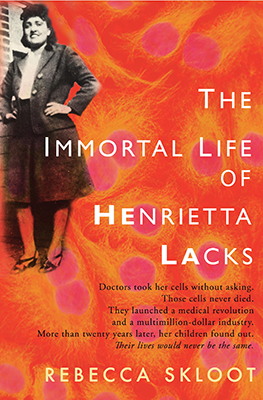Inclusivity, by the Book.

Inclusivity, by the Book
To facilitate diversity, inclusion, and understanding, each year MPH students read and discuss a book that focuses on the health of marginalized populations.
When it comes to building diversity and inclusion at the School of Public Health, “We are all part of the conversation,” says Yvette Cozier, assistant dean of diversity, equity, inclusion, and justice.
The school launched SPH Reads in 2016, a schoolwide reading program that helps facilitate this conversation by encouraging critical thought around carefully chosen books. Led by the Diversity & Inclusion office, the program is part of SPH’s 11-point plan—launched in 2015—to create a culture of inclusion and a safe environment that enables the school community to discuss challenging issues around diversity.
“Diversity and inclusion are topics that are difficult to start, and often ones people want to avoid,” Cozier points out. “But when we get people to focus on the common ways we can look at these issues, we find there is a lot that we can talk about.”
Every year, SPH Reads focuses on one book that delves into specific themes or challenges related to racial, social, or economic inequalities and the resulting impact on the health of marginalized populations. Incoming MPH students receive the book before the start of their program and discuss it with faculty during New Student Orientation. Last fall, students discussed the struggles of immigrant communities and the changing culture of America in There Goes the Neighborhood: How Communities Overcome Prejudice and Meet the Challenge of American Immigration by Ali Noorani (SPH’99), executive director of the National Immigration Forum.

The program’s debut selection, The Immortal Life of Henrietta Lacks, by Rebecca Skloot, sparked deep discussions about the ethical and legal issues of race and class in medical research. The book tells the story of the late Lacks, an impoverished Black woman with cervical cancer whose cells were taken without her knowledge in 1951 and used for critical and lucrative medical research. The school invited Lacks’ grandson and daughter-in-law to speak about the book and her life during a Diversity & Inclusion seminar in February 2017.
“As epidemiologists, we present a lot of numbers to students, but sometimes it can seem as if those numbers aren’t attached to real people,” Cozier says. “Getting to talk about the consequences of race and poverty and lack of health insurance, and then meet members of the Lacks family—the people who were impacted by these consequences—makes these issues even more real.”
The 2017 SPH Reads selection, All Souls: A Family Story from Southie, by Michael Patrick MacDonald, is a memoir about growing up in violence and poverty in the Irish community of South Boston. At the 2017 book talk, MacDonald emphasized that it’s vital not to “talk about poverty at the expense of talking about racism, and we shouldn’t talk about race at the expense of talking about poverty.”

In 2018, the Pulitzer Prize-winning Evicted: Poverty and Profit in the American City by Matthew Desmond, prompted conversations about economic instability and the impact of the nationwide housing crisis on public health, and also prompted students to examine their place in Boston’s housing history.
“Another important conversation we need to have in public health, especially in Boston, is the role that students play in the displacement process,” Cozier says, noting that current apartments occupied by four or five students used to be home to families before they were forced out due to gentrification and rising rent prices. “The idea is not to guilt young people who are just trying to find a place to live, but to understand where they stand in the housing process, and the advocacy and privilege they can draw upon to address these issues.”
The program’s 2019 selection, The Desire to Heal: A Doctor’s Education in Empathy, Identity, and Poetry, by Rafael Campo, was the first SPH Reads book selected with student input. The student organization Queer Alliance suggested the memoir, which explores the author coming to terms with his identities as a Cuban American, a gay man, and a physician during the HIV/AIDS crisis.
Cozier stresses that the SPH Reads program shows that “Public health exists all around us. Even though these books are not specifically public health books, they represent real examples of public health issues in people’s lives that textbooks don’t usually teach.”